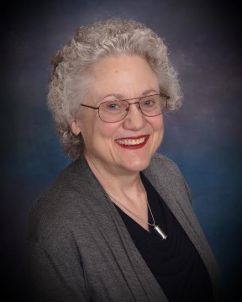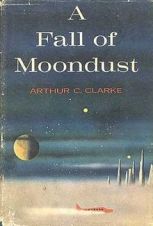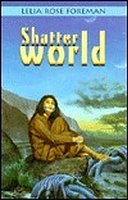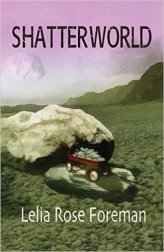Sunday, April 24, 2016
Amazon preview link for Circumnavigation of Shatterworld
https://read.amazon.com/kp/embed?asin=B01EPPHN0K&preview=newtab&linkCode=kpe&ref_=cm_sw_r_kb_dp_M-shxb08APV48
self published Amazon link for Shatterworld
https://read.amazon.com/kp/embed?asin=B01EPP3TDK&preview=newtab&linkCode=kpe&ref_=cm_sw_r_kb_dp_u7shxb1XQQ76G
Saturday, April 23, 2016
Working on Print Version of Shatterworld Trilogy
I am formatting the books for Createspace for the print versions.
I may go insane.
I may go insane.
Friday, April 22, 2016
Interview with Annie Douglass Lima
This is an interview with a writer I know on Facebook. She kindly did a piece on Shatterworld when it first came out on her blog.
Tell us a bit about your latest work.
The Gladiator and the Guard is the second book in the Krillonian Chronicles, the first one
being The Collar and the Cavvarach. The stories take place in a world almost exactly like
our own. Although most aspects of the
culture are just about what they are currently on Earth, a few sports are
different, such as the martial art known as cavvara shil. The main difference, however, is that slavery
is legal there.
The Krillonian Empire rules much of the world. An emperor, who is never named, governs from
the capital city, Krillonia, on the continent known as Imperia. Eight separate provinces (independent nations
before they were conquered) can be found on nearby continents. Each province, plus Imperia, is allowed to
elect its own legislature and decide on many of its own laws, but the emperor
reserves the right to veto any of them and make changes as he sees fit. This seldom happens, however, and to most
people the emperor is merely a vague and distant ceremonial figure.
The prevalence of slavery is probably what would stand
out the most to visitors from Earth.
There are nearly as many slaves in the city of Jarreon, where both books
take place, as free people, and they are easily identified by the steel collars they are required to wear locked around their necks. From each collar
hangs a tag inscribed with the slave’s name, their owner’s name, and a copy of
their owner’s signature. On the back of
the tag is their owner’s phone number and a bar code that can be scanned to
access additional information.
Many families own one or more slaves who do their
housework and yardwork. Businesses often
own a large number of slaves, usually for manual labor, though some are trained
for more complex tasks. Those who don’t own their own slaves may “hire in” one
belonging to someone else. The accepted
rate for an hourly wage is two-thirds the amount that a free person would earn
for equivalent labor (the money goes to the slave’s owner, of course).
Here’s the back-cover blurb for The Collar and the Cavvarach :
Bensin, a teenage
slave and martial artist, is desperate to see his little sister freed. But only
victory in the Krillonian Empire's most prestigious tournament will allow him
to secretly arrange for Ellie's escape. Dangerous people are closing in on her,
however, and Bensin is running out of time.
With his one hope fading quickly away, how can Bensin save Ellie from a
life of slavery and abuse?
And the blurb for The
Gladiator and the Guard :
Bensin, a teenage slave and martial artist, is just one victory away from freedom. But after he is accused of a crime he didn’t commit, he is condemned to the violent life and early death of a gladiator. While his loved ones seek desperately for a way to rescue him, Bensin struggles to stay alive and forge an identity in an environment designed to strip it from him. When he infuriates the authorities with his choices, he knows he is running out of time. Can he stand against the cruelty of the arena system and seize his freedom before that system crushes him?
Which characters in your books
most interested you while you wrote? Why?
All my
characters are special to me in different ways (every author has to say that,
right?). One that was especially fun to
write, though, is not actually even a real character. Steene is constantly arguing with his
conscience over the issue of owning a slave.
He imagines his conscience’s exact words as it responds to him, complete
with body language. I enjoyed giving his
conscience a little personality of its own.
For example, after one particularly lame argument on Steene’s part, “his
conscience rolled its eyes and refused to dignify that with a response.”
Some of
my characters seemed to take matters into their own hands and decide they
wanted a different role than the one I had planned for them. For example, City Watch officer (the
equivalent of a police officer) Kalgan Shigo ended up playing a much bigger
part than I had anticipated. While still
a minor character, he is a more important one than he was originally supposed
to be, and he plays a different – and much needed – role in Bensin’s life. I loved watching him take charge and step
into the position he wanted!
However,
my favorite character in these books is definitely Bensin. The struggles he is forced to go through make
him stronger, and I admire him for his perseverance and determination to meet
his goals no matter what. He is willing
to sacrifice himself for those he cares about, and while his choices aren’t
always the wisest, he is committed to doing what he feels is right. Society is against him, since he’s a slave
and has few rights, but that doesn’t stop him.
Where did you grow up, and
how did your childhood affect your writing?
I
grew up in Kenya, where I lived from age 3 to 17. My family has never had a
television, nor did we want one, and I spent my childhood immersed in books.
That instilled in me a love of reading, which soon turned into a love of
writing. That love has never left, and I have never regretted not owning a TV
(my husband and I still don’t).
I've heard that you live in Taiwan now. Tell us
about that. Has it influenced your writing at all?
My husband and I moved to the
island of Taiwan, just off the east coast of China, almost nine years ago. I teach fifth grade in an international
school in the city of Taichung and love it (both the job and the
location). The hardest part about living
here is that, even after all this time, I speak very little Chinese; and most
people in Taiwan don’t speak much English.
Linguistic difficulties have been the cause of countless awkward moments
for me! But other than that, life here
is great. I enjoy the culture and have
found people to be very welcoming and tolerant of my stumbling attempts to
communicate. The food here is great, too
– “Chinese” food in America just can’t compare!
I’ve based a few details of
Jarreon’s culture on the culture in Taiwan, where I live. The convenient boxed meals and the importance
of New Year, for example. In addition,
competition winners receive award money in red envelopes. As in Taiwan, some people in Jarreon’s lower
class chew betel nut, a legal drug sold in shops decorated with flashing
colored lights.
What books are
similar to yours (ie: if a reader enjoys X, they'd like yours)?
While
this isn’t technically a dystopian story, fans of the dystopian genre would
probably enjoy both of these books. One
of my beta readers said The Collar and
the Cavvarach reminded her of The
Hunger Games (but she liked my book better!).
Have you written any other books besides the
two in this series?
Yes; I have a fantasy series
called the Annals of Alasia, with three books in it so far: Prince of Alasia, In the Enemy’s Service, and Prince of Malorn. They take place in overlapping time periods
and can be read in any order. I also have a little book of “interviews” that I
conducted with characters in that series; it is available for free to anyone
who signs up for my mailing list. In addition, I have written a short puppet script and compiled five separate anthologies of my
students’ poetry, with proceeds going to charity (all available through my Amazon author page).
What are your upcoming writing plans?
There will be at least one
more book in the Krillonian Chronicles,
though I’m tossing around ideas that may eventually lead to other stories set
in the same world. In the meantime, I’m working on a final book in my Annals of Alasia fantasy series, called King of Malorn, which should be ready to publish in the next few
months. I’m also eager to get back to Heartsong,
the science fiction novel that I drafted for last year’s NaNoWriMo. I hope to
have that one polished and ready for publication in another year or so. Lots of
irons in the fire!
Where can readers connect with you online?
Twitter: https://twitter.com/princeofalasia
Goodreads: http://bit.ly/ADLimaOnGoodreads
Google+: http://bit.ly/ADLimaOnGooglePlus
Amazon Author Page: http://bit.ly/AnnieDouglassLimaOnAmazon
LinkedIn: http://bit.ly/ADLimaOnLinkedIn
Monday, April 18, 2016
This was a fun interview.
https://faithandfantasyalliance.wordpress.com/2016/04/18/into-the-mind-of-lelia-rose-foreman/#comments
Welcome, Spekkies, to our interview with author Lelia Rose Foreman!
Thanks for joining us, Lelia!
What are you most looking forward to about attending this year’s conference?
There’s two things: I am looking forward to some more great lectures and I’m looking forward to meeting people I otherwise only know on Facebook.
Will you be coming in costume to the Awards Banquet?
That depends. If I can still fit in my costume, I will.
How many books do you own?
A couple hundred I think. I can’t go and count because most of them are hiding in boxes waiting for my new house to be built. When I homeschooled, I owned thousands. I’ve sent five pallets of books to Rwanda.
How many books have you read so far this year?
Maybe forty. Maybe fifty. I don’t keep track very well. As soon as I finish a book I give it away, or take to a used book store, or donate to a thrift store.
What book has made the most impact on you?
I assume you mean besides the Bible. There are two main books I can think of off the top
of my head. In the fifth grade I started on my mother’s row of Reader’s Digest Condensed Books. When I reached and read Fall of Moon Dust by Arthur C. Clarke, it was like an instant
addiction to cocaine. I proceeded to start with the As and read every single science fiction book in the local library. (There were fewer of them then. They filled only one five feet wide by seven feet tall bookcase.) The second book I read at age thirteen: God’s Smuggler by Brother Andrew. That changed my walk with God.
How many books did you write before being published?
I’m going to go with three unless I remember some more before the interview is over. I also wrote a number of short stories and things that did not become finished books.
What was the inspiration behind your most recently published book?
I attended a science-fiction convention in Austin, Texas I think it was. On the strength of selling a short story to Damon Knight, I was invited to speak on a panel that was to analyze Jeremy Somebody’s doomsday book about how we mustn’t muck around with sacred evolution and because we (collective humanity) were mucking around, we were all gonna die. I had the fun of watching an entire roomful of people have a collective heart attack when I said that after four years of studying biology, biochemistry etc. I no longer believed in evolution. I certainly did not consider it sacred. So that was a bit of a ruckus.
After that I attended a lecture on the creation of aliens. An artist did sketches as the audience threw out ideas. First we determined what sort of planet the alien was on, the geography, day length, atmosphere etc. Then we began on the body of the alien that the artist arbitrarily named Irving. Oh, that was fun. After the conference, I could not get that alien out of my mind. I changed his name to Ur-Veena, wrote a short story about him and sent it to Analog. Stanley Schmidt wrote back that the story wasn’t quite special enough, but could I send him another? At the time I didn’t HAVE another story and was not experienced enough to understand what a big deal his rejection was. So I set it aside.
We moved from San Antonio to North Pole, Alaska, again living near the AF base but not on the base because one of our children screamed. A lot. I still thought about Ur-Veena from time to time and wondered if I would ever write again as I raised five children, two of whom were brain-damaged. One day as I walked out of a closet, I suddenly had the story. I literally stood there with my hands out, palms cupped upward. I looked at my left hand. That held the beginning of the story. I looked at my right hand. That held the ending. I wasn’t sure what went in the middle yet, but was sure I could find it, and I did. The seventy-sixth publisher I sent the book to accepted it. Over twenty years later I have the rights to the book. I write differently now than I did then, so I’ve rewritten Shatterworld and the two sequels, Circumnavigation of Shatterworld and Pacifists’ War, and plan to self-publish soon.
What is your goal in and for your writing?
Let’s make that goals. At one time I had the goal or ambition to win a Hugo. Always I have
wanted to think through alien places. For some reason I’m really fond of ‘different.’ In a way that I am unable to articulate coherently, I want to ‘touch’ people. I would like to think I want to glorify God. Well, I’ve given up on the Hugo. Now I want the Shatterworld trilogy and the YA science fiction series I’m working on with my oldest son (Tales of Talifar) to make enough money that the tithe will support a pastor I love in Rwanda, and the rest will contribute to the house we’re building for us and our daughter and her caregiver to age in.
We are looking forward to fellowshipping with you at this year’s conference, Lelia! Thanks for giving us a peek into your mind.

Lelia Rose Foreman has raised and released five children as the USAF moved the family to Japan, Texas, and Alaska. She and her husband now live in the Vancouver that isn’t in Canada. They lead boring lives, and after the terror they have lived through, they like boring. Despite that, she tries to write exciting stories.
Into the Mind of Lelia Rose Foreman
Thanks for joining us, Lelia!
What are you most looking forward to about attending this year’s conference?
There’s two things: I am looking forward to some more great lectures and I’m looking forward to meeting people I otherwise only know on Facebook.
Will you be coming in costume to the Awards Banquet?
That depends. If I can still fit in my costume, I will.
How many books do you own?
A couple hundred I think. I can’t go and count because most of them are hiding in boxes waiting for my new house to be built. When I homeschooled, I owned thousands. I’ve sent five pallets of books to Rwanda.
How many books have you read so far this year?
Maybe forty. Maybe fifty. I don’t keep track very well. As soon as I finish a book I give it away, or take to a used book store, or donate to a thrift store.
What book has made the most impact on you?
I assume you mean besides the Bible. There are two main books I can think of off the top
of my head. In the fifth grade I started on my mother’s row of Reader’s Digest Condensed Books. When I reached and read Fall of Moon Dust by Arthur C. Clarke, it was like an instant
addiction to cocaine. I proceeded to start with the As and read every single science fiction book in the local library. (There were fewer of them then. They filled only one five feet wide by seven feet tall bookcase.) The second book I read at age thirteen: God’s Smuggler by Brother Andrew. That changed my walk with God.
How many books did you write before being published?
I’m going to go with three unless I remember some more before the interview is over. I also wrote a number of short stories and things that did not become finished books.
What was the inspiration behind your most recently published book?
I attended a science-fiction convention in Austin, Texas I think it was. On the strength of selling a short story to Damon Knight, I was invited to speak on a panel that was to analyze Jeremy Somebody’s doomsday book about how we mustn’t muck around with sacred evolution and because we (collective humanity) were mucking around, we were all gonna die. I had the fun of watching an entire roomful of people have a collective heart attack when I said that after four years of studying biology, biochemistry etc. I no longer believed in evolution. I certainly did not consider it sacred. So that was a bit of a ruckus.
After that I attended a lecture on the creation of aliens. An artist did sketches as the audience threw out ideas. First we determined what sort of planet the alien was on, the geography, day length, atmosphere etc. Then we began on the body of the alien that the artist arbitrarily named Irving. Oh, that was fun. After the conference, I could not get that alien out of my mind. I changed his name to Ur-Veena, wrote a short story about him and sent it to Analog. Stanley Schmidt wrote back that the story wasn’t quite special enough, but could I send him another? At the time I didn’t HAVE another story and was not experienced enough to understand what a big deal his rejection was. So I set it aside.
We moved from San Antonio to North Pole, Alaska, again living near the AF base but not on the base because one of our children screamed. A lot. I still thought about Ur-Veena from time to time and wondered if I would ever write again as I raised five children, two of whom were brain-damaged. One day as I walked out of a closet, I suddenly had the story. I literally stood there with my hands out, palms cupped upward. I looked at my left hand. That held the beginning of the story. I looked at my right hand. That held the ending. I wasn’t sure what went in the middle yet, but was sure I could find it, and I did. The seventy-sixth publisher I sent the book to accepted it. Over twenty years later I have the rights to the book. I write differently now than I did then, so I’ve rewritten Shatterworld and the two sequels, Circumnavigation of Shatterworld and Pacifists’ War, and plan to self-publish soon.
What is your goal in and for your writing?
Let’s make that goals. At one time I had the goal or ambition to win a Hugo. Always I have
wanted to think through alien places. For some reason I’m really fond of ‘different.’ In a way that I am unable to articulate coherently, I want to ‘touch’ people. I would like to think I want to glorify God. Well, I’ve given up on the Hugo. Now I want the Shatterworld trilogy and the YA science fiction series I’m working on with my oldest son (Tales of Talifar) to make enough money that the tithe will support a pastor I love in Rwanda, and the rest will contribute to the house we’re building for us and our daughter and her caregiver to age in.
We are looking forward to fellowshipping with you at this year’s conference, Lelia! Thanks for giving us a peek into your mind.

Lelia Rose Foreman has raised and released five children as the USAF moved the family to Japan, Texas, and Alaska. She and her husband now live in the Vancouver that isn’t in Canada. They lead boring lives, and after the terror they have lived through, they like boring. Despite that, she tries to write exciting stories.
Tuesday, April 5, 2016
Indie Author and Book Fair
I'm getting excited as the Indie Author and Book Fair at Cannon Beach draws nearer. I'm sharing a table with Aletha Bakke. Sunday, April 10, 12:30 to 3pm, next to Jupitor's Books.
And it might not rain!
And it might not rain!
Saturday, April 2, 2016
Another blurb for Circumnavigation
I got another blurb for Circumnavigation.
Circumnavigation, like its predecessor Shatterworld,
brought me back to the days in my childhood spent reading novels such as A
Wrinkle in Time. It is the tale of a wondrous science fiction world that
includes amazing and inventive creatures, and is written in a unique voice that
melds past and future.
Kat Heckenbach
Award winning author of YA fantasy Finding Angel and
Seeking Unseen
Angel doesn’t remember her magical heritage…but it remembers her.
Subscribe to:
Comments (Atom)



